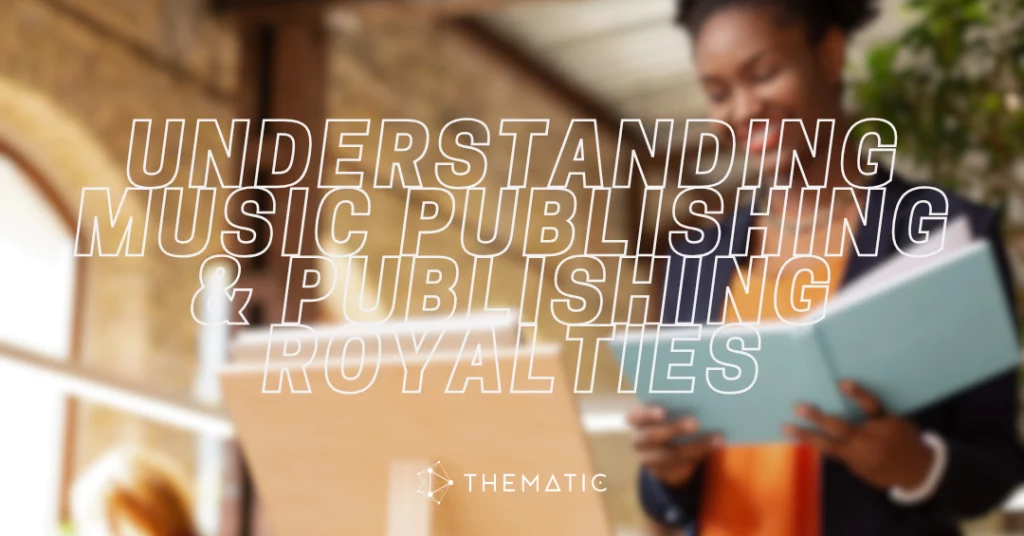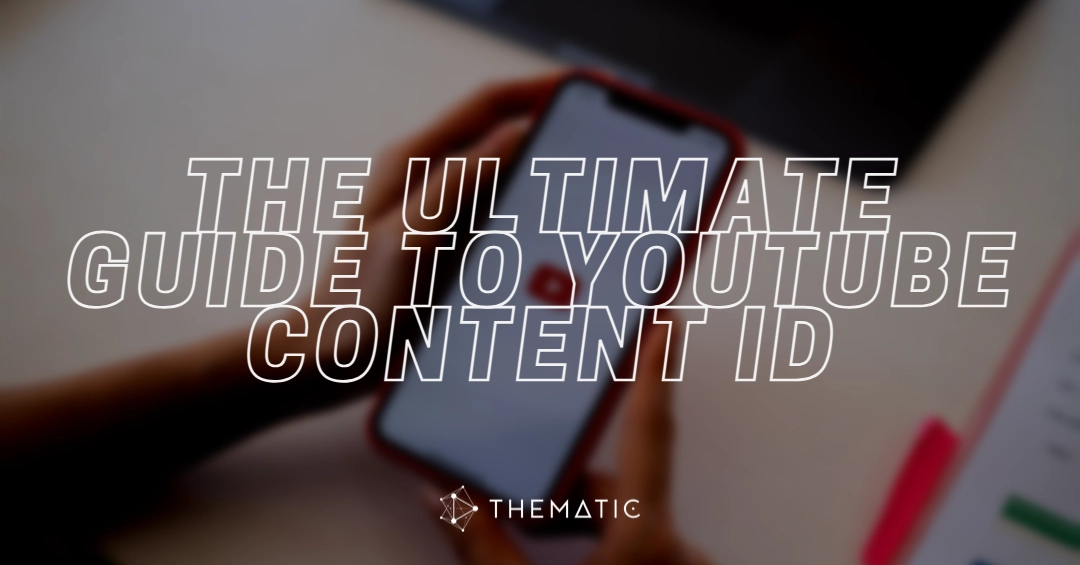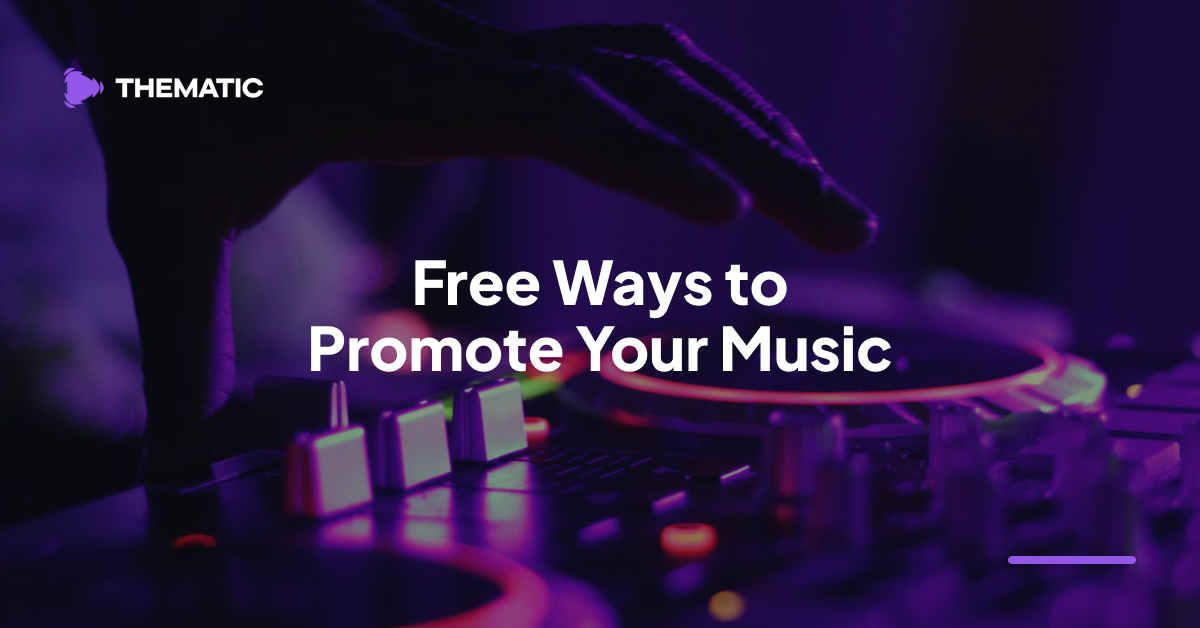Whether you’re a budding songwriter, a seasoned composer, or an artist looking to make your mark, understanding music publishing is essential to maximizing your earnings and protecting your creative work. In this guide, we’ll dive into the basics of music publishing and explore the different types of royalties, sharing real-world insights and examples along the way.

What is Music Publishing?
At its core, music publishing involves managing and monetizing the rights associated with musical compositions – the underlying lyrics and melody of a song. Music publishers work behind the scenes to ensure songwriters get paid what they earn, and may also promote songs, facilitate songwriting sessions, and secure sync placements in films, TV shows, and ads.
Who is Involved?
The music publishing ecosystem includes songwriters, producers, and composers, who create and hold the copyright to their works. These creatives must be affiliated with a collection society in their home territory to be recognized as copyright owners within this system. Music publishers work with collection societies to help manage these rights, licensing music and ensuring songwriters receive the remainder of their earnings.
Songwriters, Producers, and Composers
These are the creative minds behind the music, responsible for crafting the lyrics and melodies that resonate with listeners. They hold the copyright to their compositions, which is crucial for earning royalties. This ownership not only protects their artistic work but also allows them to benefit financially when their music is played, streamed, or licensed. By creating original content, these creatives contribute to the diverse soundscape of the music industry and shape its cultural landscape.
Collection Societies
These organizations, including Performing Rights Organizations (PROs) such as ASCAP, BMI, and SESAC, and Collective Management Organizations (CMOs) such as ABRAMUS, GEMA, and SACEM, play a vital role in collecting royalties when songs are publicly performed, streamed, or used internationally. By monitoring the usage of music across various platforms, and working in tandem with music publishers, collection societies ensure that songwriters and other rightsholders receive fair compensation across different markets.
Music Publishers
These companies or individuals help manage the rights associated with songs by handling the complexities of licensing and registrations. They may promote songs and secure placements in various media, such as films, television shows, and advertisements, which can significantly enhance a song’s visibility and earning potential. By negotiating deals and managing contracts, music publishers work to maximize earnings for songwriters while also guiding them through the intricacies of the music business. Their expertise helps ensure that songwriters can focus on their creative processes, knowing their rights and revenues are being effectively managed.
Why Does Music Publishing Matter?
Understanding music publishing is crucial to a songwriter’s long-term success and financial stability. A few of the most important reasons include:
- Maximize Earnings: By understanding different royalty types your song can earn, songwriters can explore all available revenue streams.
- Protect Their Rights: Registering songs with a publisher and a PRO or CMO safeguards rights, ensuring fair payment, especially for that future viral moment.
- Build Career Momentum: Music publishers connect songwriters with opportunities, from sync placements to licensing deals.
Types of Publishing Royalties
Understanding the different types of publishing royalties is essential for anyone in the music industry. This knowledge empowers songwriters and publishers to maximize earnings, protect their rights through proper registration, and make informed decisions about contracts. As the industry evolves, knowing how royalties work helps artists adapt and secure long-term financial stability. Below, we’ll explore the four primary types of publishing royalties – mechanical, performance, micro-sync, and print royalties – each crucial to a songwriter’s income.
Mechanical Royalties
Mechanical royalties are generated when songs are reproduced, whether through physical formats like CDs and vinyl or digital formats like downloads and streams. For example, when a song streams on Spotify or is downloaded from Apple Music, the songwriter earns mechanical royalties based on the number of streams or downloads. Each play or purchase contributes to the songwriter’s earnings, making mechanical royalties a critical revenue stream in today’s digital age.
Performance Royalties
Performance royalties are earned when songs are publicly performed, such as during live concerts, on the radio, or on streaming platforms. For example, every time Ed Sheeran’s “Shape of You” is played on the radio or performed in a venue, he earns performance royalties. Performance royalties are essential for songwriters and composers, as they generate income from every public performance of their music.
Micro-Sync Royalties
Micro-sync royalties are earned when songs are licensed for short-form video content, such as videos on platforms like YouTube, TikTok, or Instagram. For instance, Fleetwood Mac’s “Dreams” saw a resurgence in popularity – and royalties – when a viral TikTok video featured the song.
@420doggface208 ♬ Dreams (2004 Remaster) – Fleetwood Mac
Every time music is used in this kind of user-generated content, ads, or small-scale projects, micro-sync royalties offer songwriters a growing revenue stream in the world of social media.
Print Royalties
Print royalties are generated from the sale of sheet music and other printed formats. For example, if a popular song appears in a published songbook or as sheet music available in music stores, the songwriter earns print royalties from each sale. This revenue stream allows songwriters to earn income as fans and musicians purchase sheet music for educational, performance, or personal use.
Getting Started with Music Publishing
Embarking on your music publishing journey can seem daunting, but taking the right steps is crucial for protecting your creative work and maximizing your earnings. By understanding the key actions you need to take, you can navigate the landscape of music publishing with confidence and better set yourself up for success in the industry.
- Affiliate as a Songwriter at Your Local Society: Join a PRO or CMO in your area to ensure you are recognized as a songwriter and can collect publishing royalties. It’s a foundational step that many new songwriters overlook.
- Explore Publishing Deals: As your songs start to gain streaming and usage activity, consider working with a music publisher or music publishing administrator like Songtrust, which can help you manage song registrations at your home society, as well as at other societies around the world where your songs are earning, to maximize your royalty collections.
- Stay Informed: The music industry is ever-evolving. Keeping up with trends in digital distribution and changes in copyright laws will help you adapt and thrive.
By understanding the basics of music publishing and the various types of royalties your song can earn, you can take proactive steps to protect your creative work and ensure you’re compensated fairly. Whether you’re just starting out or looking to elevate your music career, knowledge is your best tool in this dynamic field.
For more tips, resources, and success stories, visit the Songtrust blog and resource center! Let’s make your music work for you!
Looking for more free resources and tools for independent artists? Check out Thematic’s Artist Toolkit for a comprehensive collection of tips and best practices on promoting your music. You’ll find guides on music copyright, effective music promotion strategies, and, of course, the best free influencer marketing platform: Thematic, which makes it easy to get your music featured by influencers.

This post on Understanding Music Publishing and Publishing Royalties: A Beginner’s Guide is brought to you by Thematic Partner Company Songtrust
Songtrust, a Downtown Company and intuitive partner for Thematic, is the industry’s most accessible music publishing administration platform for music creators and businesses at all stages of their careers.
They help songwriters monitor, register, and collect publishing income for their compositions and ensure that no songwriter leaves money on the table. We work together to reduce the complexities around music rights and publishing, empowering and educating along the way.




